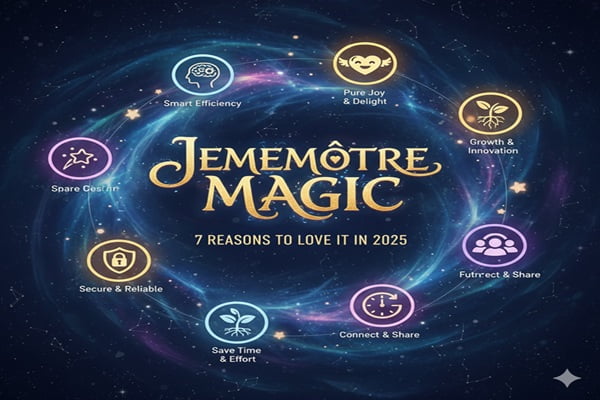Contents
French is one of those languages that feels almost alive — filled with emotion, rhythm, and an unmistakable flair. But every so often, you stumble upon a word that doesn’t just describe something — it paints a whole picture. That’s exactly what jememôtre does.
This quirky term isn’t something you’ll always find in official dictionaries, but French speakers instantly recognize its spirit. It’s not about bragging or arrogance. Instead, jememôtre describes a moment of playful self-presentation — showing a bit of personality, humor, or flair in how you express yourself.
Think of it as that lighthearted moment when someone says, “Yeah, I’m showing off a little — but just for fun.”
What “Jememôtre” Actually Means
Let’s break it down. The word jememôtre combines:
-
“je” (I)
-
“me” (myself)
-
and a twist on “montrer” (to show)
Together, it loosely translates to “I show myself.” But its meaning goes far beyond the literal sense. When someone says jememôtre, they’re often referring to how they present themselves, whether it’s through words, style, humor, or actions.
It’s a little bit of showing off, but in a self-aware and charming way.
For instance:
“Il aime bien jememôtre dans les soirées.”
(“He likes to show off at parties.”)
The phrase doesn’t carry the sharp edge of arrogance — it’s more like a wink. It implies that the person enjoys a bit of attention and knows how to make a moment entertaining.
The Cultural Story Behind “Jememôtre”
To truly understand jememôtre, you have to think about French culture itself. There’s a reason people associate France with style, confidence, and wit. The French have always celebrated individuality — but in their own unique way.
Self-expression is admired, yet modesty is valued. Outright boasting is frowned upon, but clever self-display — done with humor or grace — is appreciated. That’s where jememôtre fits perfectly.
It’s not about saying, “Look at me, I’m amazing!”
It’s more like, “Here I am, having fun — and yes, I know I’m being a little dramatic.”
This balance between self-confidence and irony is something very French. It shows that you can express yourself boldly while still keeping your charm.
How “Jememôtre” Differs from Similar French Expressions
French has plenty of words that touch on self-presentation, but jememôtre has a nuance that sets it apart. Here’s how it compares:
-
Se vanter – Means “to brag.” It’s direct and often carries a negative tone.
-
Se montrer – Literally “to show oneself.” It’s neutral, often factual.
-
Se la jouer – A casual way of saying “to act like you’re something special.” It’s slangy, informal, and often teasing.
Then comes jememôtre — the middle ground between them all. It’s not negative or overly serious. It’s playful, expressive, and often self-deprecating, like when you make a joke about your own confidence.
It’s the difference between bragging and enjoying your own sparkle.
How French People Use “Jememôtre” in Daily Life
You won’t often see jememôtre in official writing, but in conversation, social media, or casual chats — it pops up naturally. It’s especially popular among younger speakers who use it as a way to acknowledge their own self-expression with a touch of humor.
Imagine someone posts a photo of themselves in a chic outfit with the caption:
“Juste en train de jememôtre un peu aujourd’hui.”
(“Just jememôtring a little today.”)
It’s a fun, confident, and slightly ironic way of saying, “Yes, I know I’m showing off — but it’s all in good spirit.”
That’s the beauty of jememôtre: it celebrates self-expression without taking it too seriously.
Jememôtre in French Literature and Pop Culture
Although jememôtre itself is mostly used in informal speech, its spirit runs deep in French storytelling. Classic French characters — from romantic leads to witty heroes — often embody that sense of je ne sais quoi that feels very jememôtre.
Think of those charming movie scenes where a character makes a grand gesture, delivers a witty line, or strikes a pose that says, “I know I’m being extra — and I love it.”
That’s the essence of jememôtre.
In many ways, it reflects the artistic personality that France is famous for — confident, expressive, and subtly self-aware.
The Psychology Behind “Jememôtre”
Let’s be honest — we all have moments when we want to be noticed. Humans crave recognition and connection. What makes jememôtre special is how it captures that instinct without ego.
In French culture, it’s about celebrating yourself gracefully. There’s an art to being seen — you do it with a wink, not a shout. Jememôtre recognizes this social dance: the joy of self-expression without tipping into arrogance.
It’s not just about showing off — it’s about sharing who you are in a way that delights others.
How Non-Native Speakers Can Use “Jememôtre” Naturally
If you’re learning French, this is one of those expressions that can instantly make your speech sound more authentic — if used correctly.
Here’s how to master it:
Stick to casual settings.
Use jememôtre in friendly conversations, on social media, or in humorous contexts — not business meetings or formal letters.
Use humor and tone.
It works best when you’re being playful or teasing yourself.
Don’t overdo it.
Like perfume, a little jememôtre goes a long way. Use it sparingly for effect.
Pair it with visual moments.
It fits perfectly with selfies, photos, or small personal wins where you’re showing personality.
Example:
“Voilà mon petit jememôtre du jour.”
(“Here’s my little jememôtre of the day.”)
It’s charming, light, and captures that friendly French mix of confidence and humility.
Common Misunderstandings About “Jememôtre”
People sometimes mistake jememôtre for pure vanity or bragging. That’s not really accurate. The word carries warmth and self-awareness — it’s rarely used in a mean or arrogant way.
When someone says it about themselves, it’s often a joke. When said about someone else, it can be teasing but rarely insulting.
Example:
“Elle ne peut pas s’empêcher de jememôtre un peu.”
(“She just can’t help showing off a little.”)
Depending on the tone, that can mean anything from playful admiration to light teasing. Tone is everything.
Jememôtre in the Digital Era
Social media has given jememôtre a whole new life. Platforms like Instagram and TikTok thrive on self-expression, and this word captures that culture perfectly.
Posting a creative photo, sharing your art, or celebrating a milestone — these are all modern acts of jememôtre. It reflects a kind of self-presentation that’s confident yet humorous. It says, “Yes, I’m showing myself — but I’m doing it with style.”
That’s why younger generations continue to use and reinvent the term. It fits naturally into online life where personality, playfulness, and self-awareness meet.
Also Read : Swindletrilogy.Com 2025 – Powerful Storytelling Guide
Why “Jememôtre” Could Only Exist in French
Every language has its way of expressing pride or individuality, but jememôtre has something distinctly French about it. It carries the elegance and irony that define French communication — confident but never crude, expressive but always balanced.
It’s the kind of word that shows how language can reflect a nation’s soul: stylish, witty, and self-aware. Where others might boast, the French jememôtre — gracefully, charmingly, and with a knowing smile.
Quick Recap: When to Use “Jememôtre”
Here’s a simple guide:
| Situation | Is It a Good Fit? |
|---|---|
| Posting a stylish photo | Perfect use |
| Talking about your achievements playfully | Yes, fits well |
| Writing a formal email | Avoid it |
| Joking with friends | Definitely |
| Making a serious announcement | Not the right tone |
FAQs About “Jememôtre”
Q1: Is “jememôtre” officially recognized in dictionaries?
Not always. It’s used informally in conversations and online — think of it as living slang that captures modern French humor.
Q2: Can I use it in a professional context?
Not really. It’s best for friendly, casual moments or online captions.
Q3: Does it always mean something positive?
Most of the time, yes. It usually carries a teasing or lighthearted tone.
Q4: How can I learn to use it naturally?
Listen to native speakers, notice tone and humor, and try using it in relaxed situations. Don’t force it — let it flow.
Q5: Is it similar to bragging?
Not exactly. Bragging is boastful; jememôtre is playful. It’s about enjoying a moment, not claiming superiority.
Final Thoughts
Jememôtre might not show up in your French textbooks, but it captures something beautifully real about how people express themselves. It’s not about ego — it’s about presence. It’s that perfect mix of confidence, humor, and charm that makes French communication so captivating.
If you ever want to add a spark of authenticity to your French, remember this word. It’s your reminder that showing who you are — with a touch of humor and self-awareness — is something worth celebrating.
Because jememôtre isn’t just a word.
It’s a mood. A gesture. A wink.
And that’s what makes it so unmistakably French.


